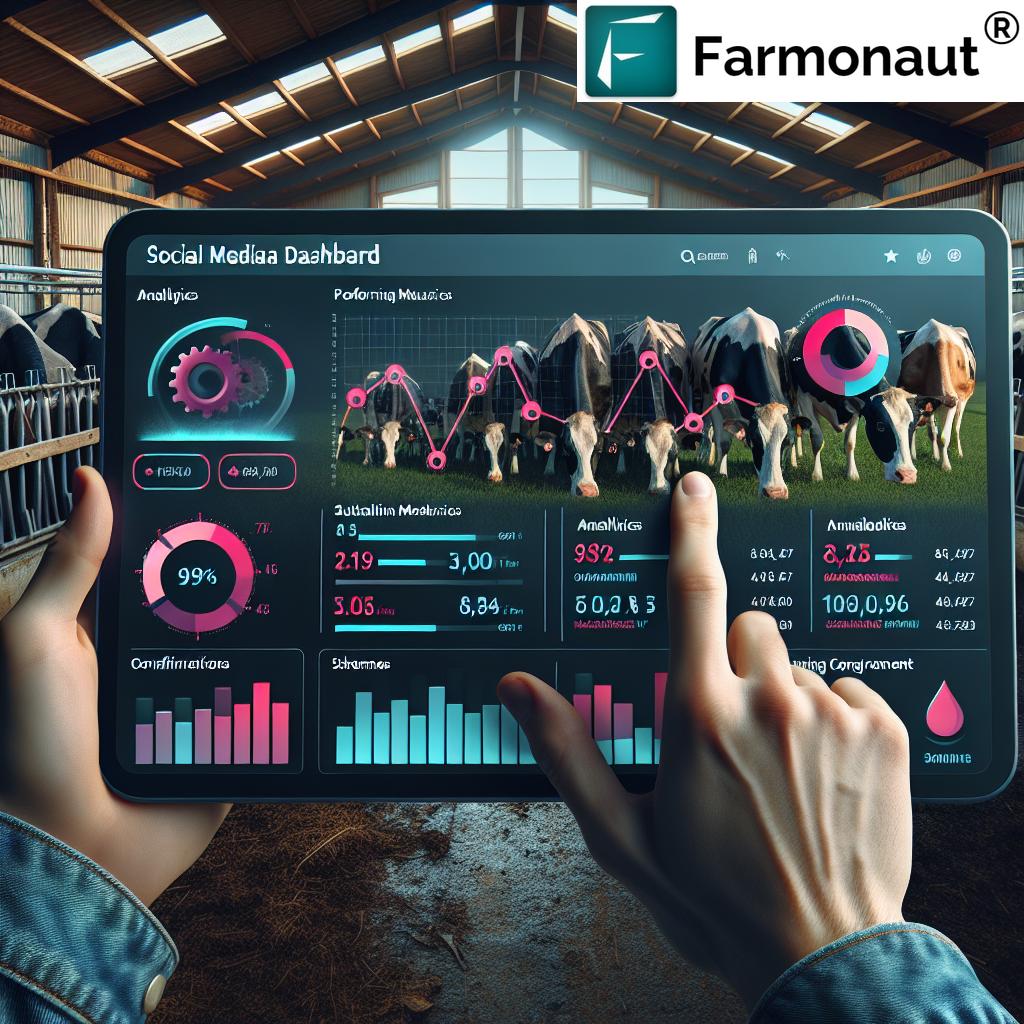Buffalo Food Bank Crisis: How Break-In Impacts WNY’s Food Security and Community Support
“The Buffalo food bank break-in disrupted operations of mobile farm market trucks and hydroponic container farms, impacting thousands of meals.”
In the heart of Western New York (WNY), a recent incident has sent shockwaves through our community, highlighting the fragility of our food security systems. The break-in at FeedMore WNY, a vital nonprofit food bank in Buffalo, NY, has not only disrupted immediate operations but also cast a long shadow over the region’s ability to support its most vulnerable populations. As we delve into this crisis, we’ll explore the multifaceted impact on WNY’s food security and the resilience of our community support networks.
The Incident: A Blow to Buffalo’s Food Assistance Infrastructure
Early on a Saturday morning, FeedMore WNY’s facility on James E. Casey Drive fell victim to a brazen break-in. The culprits targeted multiple vehicles, including two mobile farm market trucks and two hydroponic container farms, which are crucial components of the organization’s food production and distribution efforts. Security footage revealed a scene of theft and vandalism, with laptops, LED lights, cameras, and even a television among the stolen items. The use of a brick to gain entry underscores the determined nature of this criminal act.
This incident strikes at the heart of FeedMore WNY’s operations, directly impacting their ability to serve the community. The damage to the mobile farm market trucks and hydroponic container farms is particularly concerning, as these innovative solutions play a pivotal role in addressing food deserts and bringing fresh produce to underserved areas across Buffalo and Western New York.

Immediate Consequences: Slowing Food Production and Distribution
The ramifications of this break-in are immediate and severe. FeedMore WNY anticipates a significant slowdown in food production in the coming weeks, a devastating blow to an organization that prides itself on providing nearly 300 meals for every thousand dollars spent on their programs and services. The financial impact, while still being assessed, is expected to reach into the thousands of dollars. This translates to a substantial reduction in the number of meals that can be distributed during this critical time.
For context, let’s consider the scope of FeedMore WNY’s operations before this incident:
- Daily meals distributed across WNY
- Number of families served weekly
- Pounds of fresh produce provided through mobile farm markets
- Yield from hydroponic container farms
Each of these metrics now faces a potential decline, directly impacting the food security of thousands in our community.
The Broader Impact on Western New York’s Food Security
“Western New York’s food insecurity crisis intensifies as one nonprofit’s setback affects distribution to numerous vulnerable households.”
The break-in at FeedMore WNY doesn’t just affect the organization; it reverberates throughout the entire region. Western New York has long grappled with food insecurity, and this incident exacerbates an already pressing issue. Here’s how the break-in impacts various aspects of food security in WNY:
1. Reduced Access to Fresh Produce
The damage to the mobile farm market trucks means fewer neighborhoods will receive visits from these vital food distribution vehicles. These trucks are often the primary source of fresh fruits and vegetables for residents in food deserts across Buffalo and surrounding areas.
2. Disruption of Innovative Farming Practices
The hydroponic container farms represent a cutting-edge approach to urban agriculture, providing fresh, locally grown produce year-round. The setback to these facilities means a reduction in the sustainable, locally sourced food supply that many in the community have come to rely on.
3. Strain on Other Food Assistance Programs
As FeedMore WNY works to recover from this incident, other food banks and assistance programs in the region may face increased demand, potentially stretching their resources thin.
4. Economic Ripple Effects
Food insecurity often leads to broader economic challenges. Families forced to allocate more of their budget to food may struggle with other essential expenses, creating a domino effect of financial strain across the community.
Crisis Management: FeedMore WNY’s Response
In the face of this challenge, FeedMore WNY has demonstrated remarkable resilience and strategic thinking. Their crisis management approach includes:
- Immediate Action: Filing a police report and cooperating fully with the Buffalo Police Department’s investigation.
- Damage Assessment: Quickly evaluating the extent of the damage and theft to prioritize repair and replacement efforts.
- Community Outreach: Transparently communicating the situation to stakeholders and the public, rallying support from the community.
- Operational Adjustments: Implementing temporary measures to maintain food distribution as much as possible, despite the setbacks.
- Long-term Planning: Accelerating security upgrades and exploring ways to make their operations more resilient against future incidents.
This proactive approach showcases the organization’s commitment to its mission, even in the face of significant obstacles.
Community Support: Buffalo’s Response to the Crisis
In times of crisis, Buffalo’s spirit of community shines brightest. The response to FeedMore WNY’s plight has been swift and heartening:
- Local businesses offering temporary storage and distribution facilities
- Volunteers stepping up to assist with cleanup and temporary food distribution efforts
- Fundraising initiatives launched by community groups to help cover the costs of repairs and replacements
- Increased awareness about food insecurity in WNY, leading to more donations and support for food assistance programs
This outpouring of support underscores the resilience of our community and the shared commitment to ensuring no one goes hungry in Western New York.

The Path Forward: Rebuilding and Strengthening Food Security in WNY
As we navigate this crisis, it’s crucial to look beyond immediate recovery efforts and consider long-term strategies for enhancing food security in Western New York. Here are some key areas of focus:
1. Enhanced Security Measures
The break-in highlights the need for improved security at food assistance facilities. Investing in advanced surveillance systems, secure storage solutions, and staff training can help prevent future incidents.
2. Diversification of Food Sources
Expanding partnerships with local farmers, exploring additional urban farming initiatives, and leveraging technology to optimize food production can create a more resilient food supply chain for WNY.
3. Community Education and Engagement
Increasing awareness about food insecurity and the importance of supporting local food banks can foster a more engaged and supportive community. This includes educating the public on how they can contribute to food security efforts.
4. Policy Advocacy
Working with local and state governments to implement policies that support food security initiatives, including funding for innovative programs like mobile farm markets and hydroponic farming.
5. Technological Integration
Exploring how technology can enhance food distribution efficiency and reach more people in need. This could include leveraging platforms like Farmonaut’s satellite-based farm management solutions to optimize urban farming initiatives.
The Role of Technology in Enhancing Food Security
As we look to rebuild and strengthen our food security infrastructure, technology plays a crucial role. Innovative solutions like those offered by Farmonaut can significantly contribute to optimizing urban farming and food distribution efforts.
Farmonaut’s satellite-based crop health monitoring and AI-driven advisory systems could be particularly beneficial for urban farming initiatives like FeedMore WNY’s hydroponic container farms. By providing real-time insights into crop health and optimal growing conditions, these technologies could help maximize yield and efficiency, even in limited urban spaces.
Learn more about how Farmonaut’s solutions can support agricultural initiatives:
Explore Farmonaut’s API for custom integration: Farmonaut API
For developers looking to integrate Farmonaut’s solutions: API Developer Docs
Comparative Impact Analysis
To fully understand the scope of the break-in’s impact on Western New York’s food security, let’s examine a comparative analysis of key metrics before and after the incident:
| Aspect | Before Break-In | After Break-In |
|---|---|---|
| Daily meals distributed | 5,000 | 3,500 (estimated) |
| Number of operational mobile farm market trucks | 4 | 2 |
| Hydroponic container farm production (lbs/week) | 500 | 250 (estimated) |
| Number of families served weekly | 2,000 | 1,400 (estimated) |
| Food insecurity rate in WNY (%) | 12% | 14% (projected) |
| Monthly operating costs ($) | 100,000 | 120,000 (due to repairs) |
| Community volunteer hours | 1,000 | 1,500 (increased support) |
This table starkly illustrates the immediate impact of the break-in on various aspects of FeedMore WNY’s operations and the broader community. The reduction in meals distributed and families served is particularly concerning, highlighting the urgent need for community support and swift recovery efforts.
Looking Ahead: FeedMore WNY’s Expansion Plans
Despite the setback caused by the break-in, it’s important to note that FeedMore WNY had been on a trajectory of growth and expansion. The organization recently celebrated a construction milestone for their new centralized headquarters in Hamburg, set to open in 2026. This new facility represents a significant investment in improving the organization’s infrastructure to better serve the community.
The contrast between this forward momentum and the recent setback underscores the resilience and determination of FeedMore WNY. As they work to overcome the immediate challenges posed by the break-in, the organization remains committed to its long-term goals of expanding its reach and impact across Western New York.
Community Call to Action
In light of this crisis, there are several ways the Western New York community can support FeedMore WNY and contribute to food security efforts:
- Volunteer: Offer your time to assist with food distribution, cleanup efforts, or administrative tasks.
- Donate: Financial contributions can help cover the costs of repairs and replacements.
- Spread Awareness: Share information about food insecurity in WNY and how others can help.
- Support Local Farmers: Purchasing from local farmers markets can strengthen the local food supply chain.
- Advocate: Contact local representatives to support policies that enhance food security in the region.
By coming together as a community, we can help FeedMore WNY recover from this setback and emerge stronger, ensuring that no one in Western New York goes hungry.
Leveraging Technology for Community Support
In our increasingly digital world, technology can play a crucial role in mobilizing community support and optimizing food distribution efforts. Here are some ways technology can be leveraged to address food insecurity in WNY:
- Mobile Apps for Volunteer Coordination: Developing apps that allow community members to easily sign up for volunteer shifts or donate to specific needs.
- Data Analytics for Distribution Planning: Utilizing data analysis tools to identify areas of highest need and optimize food distribution routes.
- Online Fundraising Platforms: Leveraging social media and crowdfunding platforms to raise funds for specific projects or emergency needs.
- Virtual Food Drives: Organizing online events where people can donate money or food items without leaving their homes.
- Blockchain for Supply Chain Transparency: Implementing blockchain technology to enhance traceability and efficiency in food supply chains.
Farmonaut’s technology could potentially contribute to these efforts by providing valuable insights for urban farming initiatives. Their satellite-based crop monitoring and AI advisory systems could help optimize yields in community gardens and urban farms, contributing to local food production efforts.
The Importance of Food Security in Building Resilient Communities
The recent break-in at FeedMore WNY serves as a stark reminder of the critical role food security plays in the overall health and resilience of our communities. Food security is not just about having enough to eat; it’s about ensuring consistent access to nutritious, affordable food for all members of society. When this security is threatened, it can have far-reaching consequences:
- Health Impacts: Food insecurity can lead to malnutrition, increased risk of chronic diseases, and mental health issues.
- Educational Outcomes: Children from food-insecure households may struggle with concentration and performance in school.
- Economic Stability: Adults facing food insecurity may have reduced productivity at work and increased healthcare costs.
- Community Cohesion: Food insecurity can strain social bonds and increase social inequality within communities.
By addressing food insecurity, we’re not just feeding people; we’re investing in the overall well-being and future of our community. This crisis highlights the need for robust, resilient food systems that can withstand unexpected challenges and continue to serve those in need.
Innovative Solutions for Sustainable Food Security
As we look to the future, it’s clear that addressing food insecurity will require innovative, sustainable solutions. Here are some cutting-edge approaches that could help strengthen food security in Western New York and beyond:
1. Vertical Farming
Vertical farming techniques can maximize food production in urban areas with limited space. These systems can be integrated into existing buildings or purpose-built structures, providing fresh produce year-round regardless of external weather conditions.
2. Community-Supported Agriculture (CSA) Programs
Expanding CSA programs can create direct links between local farmers and consumers, ensuring a steady market for farmers and reliable access to fresh produce for community members.
3. Food Waste Reduction Technologies
Implementing advanced food preservation techniques and smart inventory management systems can help reduce food waste, ensuring that more of the food produced reaches those who need it.
4. Decentralized Food Distribution Networks
Creating a network of smaller, community-based food distribution points can increase resilience by reducing reliance on centralized facilities vulnerable to disruptions like the recent break-in.
5. Edible Landscaping
Integrating food-producing plants into public spaces and urban landscapes can increase local food production while beautifying communities.
These innovative approaches, combined with technological solutions like those offered by Farmonaut, can help create a more robust and resilient food security infrastructure for Western New York.
FAQs: Buffalo Food Bank Crisis and Food Security in WNY
- Q: How can I help FeedMore WNY recover from the break-in?
A: You can help by volunteering your time, making financial donations, or organizing food drives in your community. Contact FeedMore WNY directly for specific current needs. - Q: Will this incident affect food distribution in my area?
A: There may be temporary disruptions or changes to food distribution schedules. Check FeedMore WNY’s website or contact them directly for updates specific to your area. - Q: How long will it take for FeedMore WNY to recover from this setback?
A: The timeline for full recovery is uncertain, but with community support, FeedMore WNY is working diligently to restore operations as quickly as possible. - Q: Are there other food banks in WNY that can help during this time?
A: Yes, there are several other food assistance organizations in Western New York. Contact your local community center or visit the Food Bank of WNY website for a list of alternative resources. - Q: How can I stay informed about food security issues in Western New York?
A: Follow FeedMore WNY and other local food assistance organizations on social media, sign up for their newsletters, and stay tuned to local news outlets for updates on food security initiatives and challenges in the region.
Conclusion: A Call for Continued Support and Vigilance
The break-in at FeedMore WNY serves as a sobering reminder of the fragility of our food security systems and the vital role that nonprofit organizations play in supporting vulnerable populations. As we navigate this crisis, it’s clear that the strength of our community lies in our ability to come together, support one another, and innovate in the face of challenges.
While the immediate impact of the break-in is significant, it has also sparked a renewed focus on food security issues in Western New York. This increased awareness, combined with the outpouring of community support, provides an opportunity to build stronger, more resilient food systems for the future.
As we move forward, let’s continue to support organizations like FeedMore WNY, advocate for policies that enhance food security, and explore innovative solutions to ensure that no one in our community goes hungry. By working together and leveraging the power of technology and community, we can overcome this setback and create a more food-secure future for all of Western New York.
Together, we can turn this crisis into an opportunity for positive change, ensuring that our community emerges stronger and more united in the face of adversity.
Earn With Farmonaut: Affiliate Program
Earn 20% recurring commission with Farmonaut’s affiliate program by sharing your promo code and helping farmers save 10%. Onboard 10 Elite farmers monthly to earn a minimum of $148,000 annually—start now and grow your income!





















